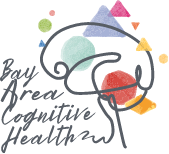Expert Neuropsychological Assessment
Children & Adolescents

How can an evaluation help my child?
Understand the obstacles getting in the way of your child’s success and provide appropriate diagnoses.
Describe strengths and weaknesses in thinking skills and provide recommendations to help compensate for challenges.
Clarify the impact of medical conditions or brain injury on your child’s life and future.
Educate parents and families on ways to best support your child, improve quality of life, and maximize their potential.
Increase access to resources in the community and school such as academic accommodations.
Support the development of an effective Individualized Educational Plan (IEP) or 504-plan.
Provide tools to help you advocate for your child’s individual needs in their school and community.
Clarify whether academic, cognitive, or psychiatric interventions are helping over time.

What does neuropsychology add over an educational evaluation?
Like a psychoeducational assessment, a neuropsychological evaluation will provide information about your child’s academic strengths and weaknesses and determine if they meet criteria for an academic or learning disorder.
In addition, neuropsychological evaluations provide insight into why your child has challenges, what factors may influence their brain’s functioning, and offer diagnostic clarity regarding underlying medical problems, all of which can inform interventions.
In addition, neuropsychological evaluations provide insight into why your child has challenges, what factors may influence their brain’s functioning, and offer diagnostic clarity regarding underlying medical problems, all of which can inform interventions.
What is involved in a Neuropsychological evaluation?
The process begins with an interview to learn more about your concerns and goals for the evaluation


Neuropsychological testing involves oral questions and paper-and-pencil and puzzle tasks to assess thinking skills, emotional functioning, and behavior related to brain functions and their impact on academic achievement. Some of our tasks resemble schoolwork and others may feel like puzzles or games.
Performances on these tests are then compared to those of other children of a similar age. All children have strengths and weaknesses; however, certain patterns can be signs of a problem for which they may need special assistance or accommodations.
When results are interpreted, we consider a variety of things: other factors that could impact testing; how problems are impacting the child’s daily life; as well as medical, psychological, and social and cultural history.
When the evaluation is complete, we will meet with you to review all findings and recommendations. You will be provided a comprehensive written report summarizing these findings, which can then be submitted to your child’s school, physicians, or other providers, as needed.
Performances on these tests are then compared to those of other children of a similar age. All children have strengths and weaknesses; however, certain patterns can be signs of a problem for which they may need special assistance or accommodations.
When results are interpreted, we consider a variety of things: other factors that could impact testing; how problems are impacting the child’s daily life; as well as medical, psychological, and social and cultural history.
When the evaluation is complete, we will meet with you to review all findings and recommendations. You will be provided a comprehensive written report summarizing these findings, which can then be submitted to your child’s school, physicians, or other providers, as needed.
How do I prepare my child for testing?
Children often benefit from being told what to expect during their appointment. You can explain that the evaluation is going to help them understand their own strengths and weaknesses so they can feel their best at home and at school. They may also be reassured that this visit does not involve needles or shots.
Children benefit from a good night’s sleep and a healthy breakfast before their appointment. If your child takes medications, they should continue to do so, as usual, unless otherwise instructed by their prescribing physician. The time it takes to complete testing varies, and the evaluation may require multiple appointments to complete. Your child will be offered regular breaks to help them remain engaged during longer appointments.
Children benefit from a good night’s sleep and a healthy breakfast before their appointment. If your child takes medications, they should continue to do so, as usual, unless otherwise instructed by their prescribing physician. The time it takes to complete testing varies, and the evaluation may require multiple appointments to complete. Your child will be offered regular breaks to help them remain engaged during longer appointments.
Telehealth and in-home appointments may be available upon request
BOOK A FREE CONSULTATION
Why a neuropsychological evaluation may be recommended
To evaluate for a suspected neurodevelopmental disorder such as
Learning Disorders
Difficulties with one of more areas of learning: reading, spelling, writing, or math.
ADHD/ADD
Difficulties with paying attention, staying organized, sitting still, and controlling impulses
Autism Spectrum Disorder
Difficulties with communication, relationships, and repetitive behaviors and limited interests
Intellectual Disability
Difficulties with general intellectual functions, including skills like reasoning, planning, judgement, and learning.
Why a neuropsychological evaluation may be recommended
To evaluate for a suspected neurocognitive effects of medical conditions such as
Concussions / mild TBI
Most children have uncomplicated recoveries in 1-2 weeks. However, children with persistent symptoms may benefit from a range of evaluation services from brief to comprehensive assessments. These can help track recovery, inform return to typical activities, and provide a broader understanding about potential barriers when recovery takes longer than expected.
Traumatic Brain Injuries
Children who have experienced a TBI more severe than a concussion can have persistent neurocognitive and behavioral challenges across development.
Brain Tumors
Brain tumors can present with a variety of physical, cognitive, and behavioral symptoms related to the type of tumor, the tumor’s location in the brain, and treatment side effects. While survivors often experience significant recovery of functions with tumor removal, affected children remain at risk for lasting cognitive challenges and difficulties adjusting to developmental transitions.
Epilepsy
Or recurring seizures, is a disorder of abnormal nerve cell activity that may occur as a result of a genetic disorder or an acquired brain injury. Seizures affect thinking in different ways depending on factors such as how long a person has had seizures, how long the seizures last, the person’s natural strengths and weaknesses, and the effects of certain medications or surgical interventions.
Prematurity at Birth
Not all children who are born premature develop neurocognitive issues. Children born extremely premature, extremely low weight, or significantly small for gestational age are at the greatest risk for challenges that may not appear until later in development when social and academic demands exceed the child’s resources.
Genetic Conditions
There are a many genetic conditions that can affect neurodevelopment and quality of life across the lifespan, including, but not limited to, Fragile X-Syndrome, Williams Syndrome, 22q11.2 Deletion Syndrome, and Down Syndrome.
Brain Bleeds
Stroke is often associated with older age, but vascular brain injuries can occur across the lifespan. Advances in brain imaging have shown that children with perinatal injuries, congenital heart disease, or vascular conditions such as sickle cell disease or moyamoya may experience subclinical strokes that can impact learning and thinking skills across development.
Chemotherapy/Radiation Effects
Even when tumors occur outside the brain, childhood cancer and cancer-related treatments can impact brain development and maturation, placing survivors at risk for long-term challenges with thinking skills.
What is a Neuropsychologist?
A Neuropsychologist is a licensed psychologist specializing in the area of brain-behavior relationships.
Pediatric neuropsychologists also have expertise in neurodevelopment and the relationship between brain health and academic, social, and daily functioning in children and adolescents.
Board certification in Clinical Neuropsychology is the clearest demonstration of this expertise.
What information is needed from me?
Every child and evaluation is different and may require different types of information.
The following sources of information are often requested:
The following sources of information are often requested:
Medical records
Educational records (including report cards)
Results of standardized testing
Educational plans (e.g., IEP, 504-plan)
Previous evaluation reports

